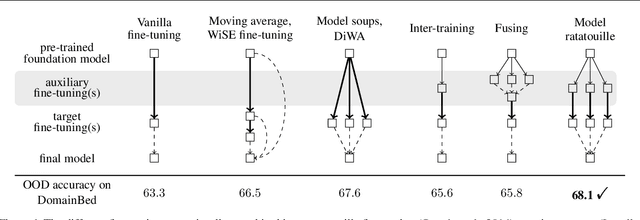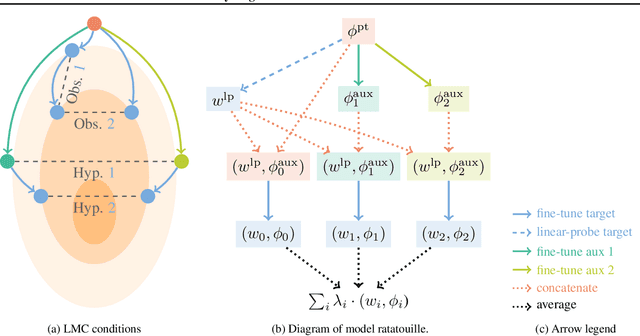Recycling diverse models for out-of-distribution generalization
Paper and Code
Dec 20, 2022



Foundation models are redefining how AI systems are built. Practitioners now follow a standard procedure to build their machine learning solutions: download a copy of a foundation model, and fine-tune it using some in-house data about the target task of interest. Consequently, the Internet is swarmed by a handful of foundation models fine-tuned on many diverse tasks. Yet, these individual fine-tunings often lack strong generalization and exist in isolation without benefiting from each other. In our opinion, this is a missed opportunity, as these specialized models contain diverse features. Based on this insight, we propose model recycling, a simple strategy that leverages multiple fine-tunings of the same foundation model on diverse auxiliary tasks, and repurposes them as rich and diverse initializations for the target task. Specifically, model recycling fine-tunes in parallel each specialized model on the target task, and then averages the weights of all target fine-tunings into a final model. Empirically, we show that model recycling maximizes model diversity by benefiting from diverse auxiliary tasks, and achieves a new state of the art on the reference DomainBed benchmark for out-of-distribution generalization. Looking forward, model recycling is a contribution to the emerging paradigm of updatable machine learning where, akin to open-source software development, the community collaborates to incrementally and reliably update machine learning models.
 Add to Chrome
Add to Chrome Add to Firefox
Add to Firefox Add to Edge
Add to Edge